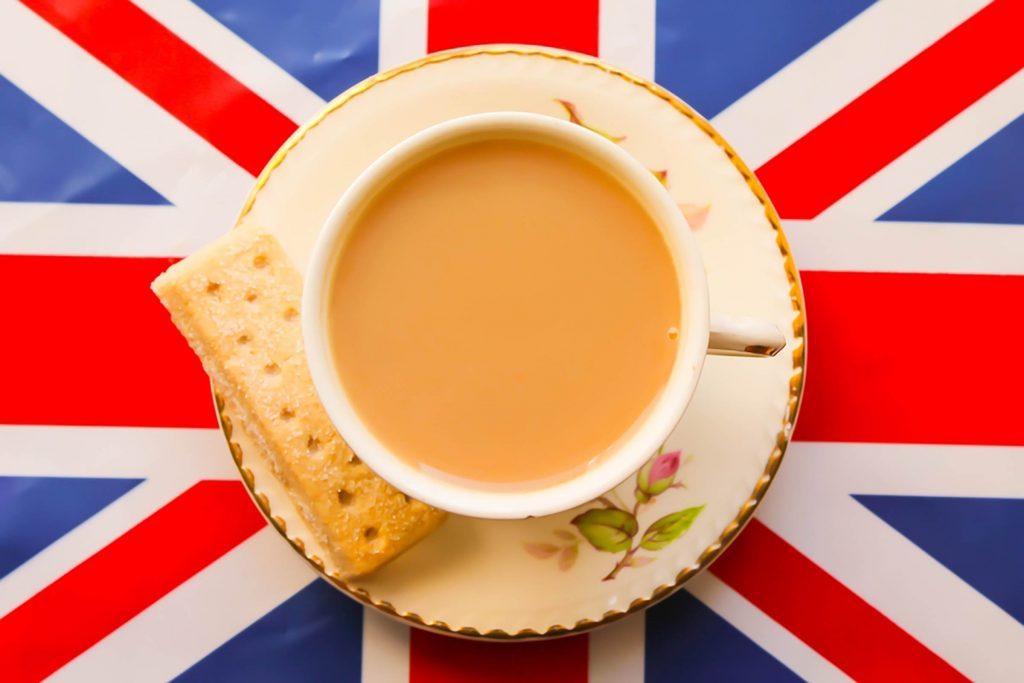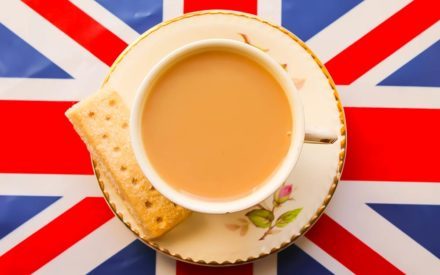This Is Why the British Drink So Much Tea

Tomato sauce is not Italian; the tomato is native to South America and was not introduced to Europe until the 16th century. Tea isn’t British, it wasn’t even all that popular for Britons until the 17th century. But now it’s as British as dreary weather and red phone booths.
Tea is of such utmost importance, that it warranted a feature in the Evening Standard written by George Orwell back in 1946. The famous author describes the beverage thusly “tea is one of the main stays of civilization in this country.” But when, exactly, did this practice become in vogue?
The year was 1662, a mere 111 years before insurgents from the soon-to-be reigning champions of the Revolutionary War (read: U-S-A, U-S-A) dumped a whole bunch of tea into Boston Harbor. Catherine of Braganza of Portuguese royalty wed King Charles II, and then proceeded to make teatime a thing.
Tea was being downed by Britons at the time, but the costs to transport it from the Far East made it an expensive delicacy. Nonetheless, when Catherine started to make tea consumption a daily practice, it trickled down to the other nobles.
Not long after the practice was initially adopted by the upper class, the East India company began to import more tea to meet the demand. With the prices lowered, everybody could afford to indulge, and suddenly tea was the drink of the everyman. (Lucky for the everyman, there are countless health benefits to drinking tea).
After centuries of ritual, it has become entirely ingrained in the British identity itself. Turkey may consume the most tea annually, but the British still hold the title of association.
[Source: Travel + Leisure]





Aucun commentaire